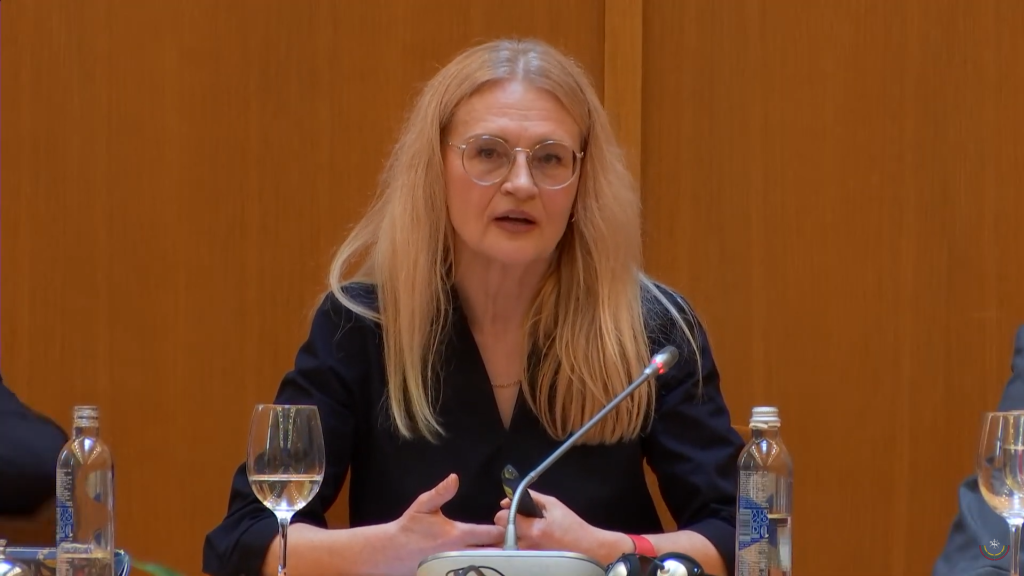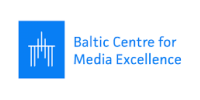Experts in Lithuania discuss how to tackle the challenges of indifference, polarisation and the digital divide
On the 6th of May Lithuanian media and political experts discussed how to address the challenges of indifference, polarisation and digital divide in society during the scientific and practical symposium “Intersections of Political Communication: Society, Media, Politics” held in the Seimas of the Republic of Lithuania. The symposium was attended by professor Auksė Balčytienė, Head of DIGIRES and Chief Researcher, and insights were shared by the guest speaker Jesper Strömbäck, professor at the University of Gothenburg, who is researching the phenomena of the intersections of politics, media and society.
“Today, we are not only talking about political polarisation, but also about the confrontations that arise between different groups,” said J. Strömbäck, the symposium guest speaker. According to the professor, while the human capacity to process information has not changed, the amount of information has grown enormously. In researcher’s opinion, this information overload is contributing to the growing political and emotional polarisation. “Individual motivation and ability to sift through information is therefore becoming increasingly important,” emphasized J. Strömbäck.
Connectivity gaps and the digital divide
“How can we create digital resilience in a society where social ties are fraying, communities are fragmenting, and social bubbles are forming that are fragmenting society?”, asked A. Balčytienė, the Head of the DIGIRES association, and professor of the Department of Public Communication at Vytautas Magnus University.
Despite significant investment in media literacy and fact-checking projects, we are still fighting the consequences rather than the causes, she says. “We don’t talk much about exclusions, about people not communicating, about communities that have fallen apart and have fractured relationships. We are not tackling the core problem of bringing people together, getting to know different groups. I think this is the huge issue,” said A. Balčytienė.

According to the researcher, the European Social Survey (ESS) opinion poll showed that those who believe in conspiracy theories (CTs) are less educated, have lower incomes, distrust other people and, in particular, political institutions. Those who believe in CTs are most likely to lack political knowledge and digital skills – for example, in Lithuania, some people who believe in CTs are unfamiliar with the meaning of PDF. Also in Lithuania, people from all groups of society spend more time on the internet and social networks compared to Finns. “It is important to understand the other” is not typical for any group in Lithuania.
“Such result leads to distrust of others, which does not create a favorable climate for the development of a democratic culture,” A. Balčytienė noted, citing the example of Finland, which has a higher level of news following, with a higher level of trust in public institutions and in each other.
“We can learn from this country a culture of sharing or inclusion, a closer connection in communities. We can all feel excluded because of our circumstances: age, health, education, socio-economic status, where we live. None of us is immune from being marginalised in some way,” said A. Balčytienė, calling for more focus on community integration and mutual understanding between different social groups in order to address more effectively the challenges of digital divide and miscommunication.
Mistrust and myths about “systemic media”
“The media has changed dramatically – it is now much better regulated, more accountable, and journalists are more free than before. However, public trust in the media is declining and is almost twice as low as in Scandinavian countries. Trust in politicians and decision-makers is particularly low. What are the reasons for this?”, asked Rasa Lukaitytė-Vnarauskienė, editor-in-chief of the news portal „Delfi“.
She says that there are still some people in society who talk about “systemic media” or pre-determined formulas for content, but the expert debunks these myths. “When different groups of people come to the editorial office, I start telling them, showing them how we work. Then people leave with a completely different attitude. I think that the media needs to talk more about who it is, how it works and why it is important,” notes R. Lukaitytė-Vnarauskienė.
Drawing on research in the US, she identifies the phenomenon of the “news diet” and the avoidance of information overload as factors that contribute to people’s disengagement from the active consumption of information, often by choosing to ignore unpleasant information and thus losing the opportunity to participate actively in democratic processes.
Information wells and radicalising polarisation
In social media, different groups often form separate information wells (also known as echo chambers or information bubbles) that reinforce existing beliefs and prevent from accepting different opinions. Dr. Justina Zamauskė, assistant professor at the Department of Digital Cultures and Communication at Vilnius University, highlighed that social media shapes consumers information consumption habits and contributes to the formation of information wells. This phenomenon is linked to both social and technological reasons: consumers tend to choose information that corresponds to their views, and technological algorithms reinforce this tendency.
“Information wells foster polarisation, and can even escalate into radical actions in real life. It also undermines the democratic system, which can only function if different groups can talk to each other and reach compromises. At the same time, in social media, audiences hear targeted messages, divide into groups, choose like-minded people, have little interaction with other groups, share their original beliefs and interact with people who support them. Why is this happening? On the one hand, it is easier for people to be with those who share their views, and there is a technological aspect at play – i.e. social media algorithms that influence what information we receive. But it also depends on what content we choose to consume and how we engage with it”, said J. Zamauskė.
Populist and rude rhetoric establishes
According to Dr. Giedrė Vaičekauskienė, a lecturer at the Faculty of Communication of Vilnius University, populist rhetoric has become part of the stream of public discourse. This rhetoric is characterised by the creation of a confrontation between “us” and “them/others – who appears threatening”, creating the so-called “politics of fear”. “We live in a post-truth era, when we are more likely to believe in what ‘hooks’ us emotionally and less willing to check whether what a politician says is true, whether his statements are consistent with his actual actions and behaviour,” said G. Vaičekauskienė.
According to the expert, there is not only a growing populism in society, but also a change in language, manners and rhetoric, especially in the context of social networks. “Rudeness is becoming a strategic tool for authenticity,” she said, referring to critical discourse researcher Ruth Wodak, and emphasizing that the use of rudeness and emotions contributes to the reinforcement of populist discourse and to social tensions.
There is a lack of quality political debate
Modern political communication strategies often involve positive or negative communication to differentiate oneself from competitors. Dr. Andrius Šuminas, Associate Professor at the Vilnius University Faculty of Communication, drew attention to “messages about nothing”, which often do not have a clear topic, but simply urge people to “vote for us”. The speaker pointed out that negative communication is often popular among smaller or populist parties, which try to attract media attention with radical statements. “Politicians or political parties with few resources are more likely to use negative communication, spreading radical negative ideas to draw attention to themselves”, the expert said.
He also noted that there is no debate at the political level, politicians communicate with their voters and opponents are publicly ridiculed. In this way, according to A. Šuminas, we lose the opportunity to debate as a society.
“Politicians, who used to appeal to undecided voters, are now mainly focusing on their existing supporters, “shepherding” them with their favorite rhetoric,” said Aidas Petrošius, Head of Development at „Mediaskopas“, a media monitoring and analysis company. This strategy, according to the expert, leads to stagnation in political communication and reduces the quality of public discourse.
However, as A. Šuminas notes, there are also positive trends – some political campaigns are looking for new and innovative ways to better reach out to the electorate and connect with them by focusing on topics that are in line with the values of the political party.
Full discussion (in Lithuanian) can be found here.
The organiser of the scientific-practical symposium “Intersections of Political Communication: Society, Media, Politics” is the Political Communication Research Centre of Vilnius University, Faculty of Communication.
The patron of the symposium is the Speaker of the Seimas Viktorija Čmilytė-Nielsen.







